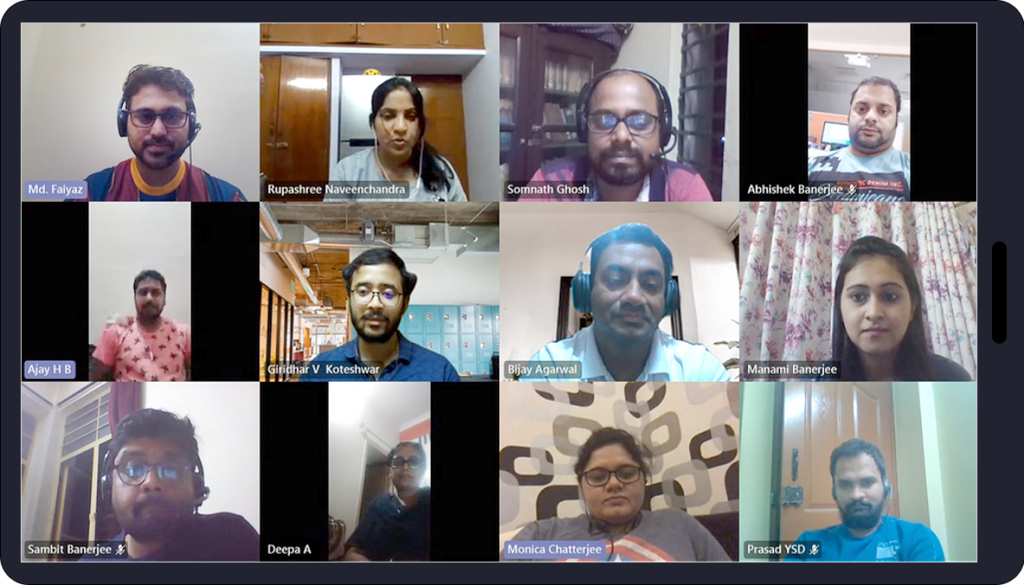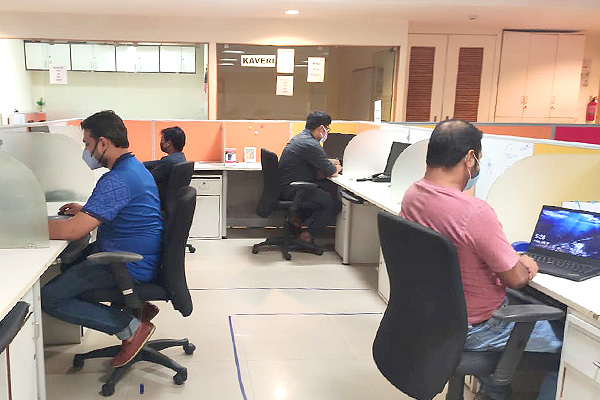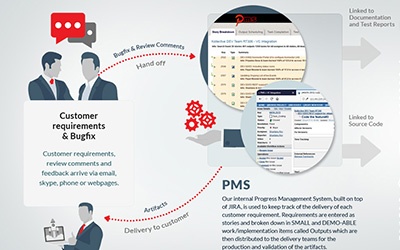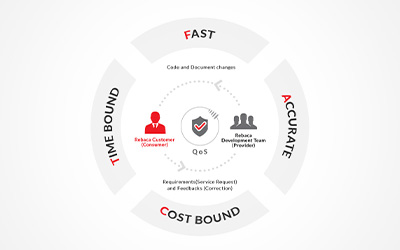While the world was dealing with an emergent crisis and rushing to send everyone in a lockdown, corporates had to think ahead to be on the forefront of the Covid-19 pandemic. One the one hand, employee safety was a top priority and on the other hand they had to continue to meet customer deliveries. Implementing effective remote workplaces was the only viable solution but this required nuanced solutions which the IT industry was already prepared for than the rest of the world.
The first step to mobilize remote working in a large scale for an indetermined period of time requires the HR team to get on board and come up with a special remote work policy. This would be the foundation to a remote support system to the employees focused on the health and safety of them and their loved ones. Working from home has been a common practice in the IT industry as it provided flexibility to meet customer deadlines. This became even more practical with the introduction of virtual meeting rooms and virtual collaboration tools.

We sat infront of our computer screens and watched the onset of COVID and the rise in COVID cases push companies worldwide to set up work from home and the IT industry quickly adapted to this.
The HR policies blended with the work from home process so that interacting with leads and customers over the digital tools became intuitive. The next step is setting up a remote attendance and performance tracker making leave application/approval process very convenient. And thanks to MS Teams, Sharepoint, Slack, etc. team interactions and collaborations are executed online with ease.
HR and Admin teams play a big role to keep up the morale and positive culture of the organization. Virtual meetups & employee engagements is a good mechanism to check-in with team members and their families. Shared meals and game nights is another way to connect with co-workers after office.
As the crisis worsened, employees eventually got affected by Covid. Health policies i.e. Covid Rakshak and upgrading the terms and conditions of the current health insurance, to cover Covid related expenses are a few ways corporates can help. Admin teams should regularly circulate the safety measures to stay safe.

After the initial lockdown, employees needed to come to offices on occasion. For which the physical offices needed to be sanitized and necessary Covid precautions were taken. Workplace sanitization, temperature checks and WHO recommended socially distanced seating areas were a few practices when opening offices to make sure the office is a safe place for people to come and get their work done.
Here at Rebaca, we had preemtively taken such measures and prioritized the health and safety of the employees. At the this time of crisis, our team members took care of each other and we have evolved into a tech-savvy organization. Without having met for more than a year, teams have been successfully delivering on customer deadlines and procuring new customers.
We look forward to making more adaptations and learn how to make remote workplaces more successful and sustainable. Working from home brings about more challenges that the industry and Rebaca is eager to find innovative solutions to. Stay tuned for the next article to learn more about adjusting to the new way of working both from the employer and employee perspective.





